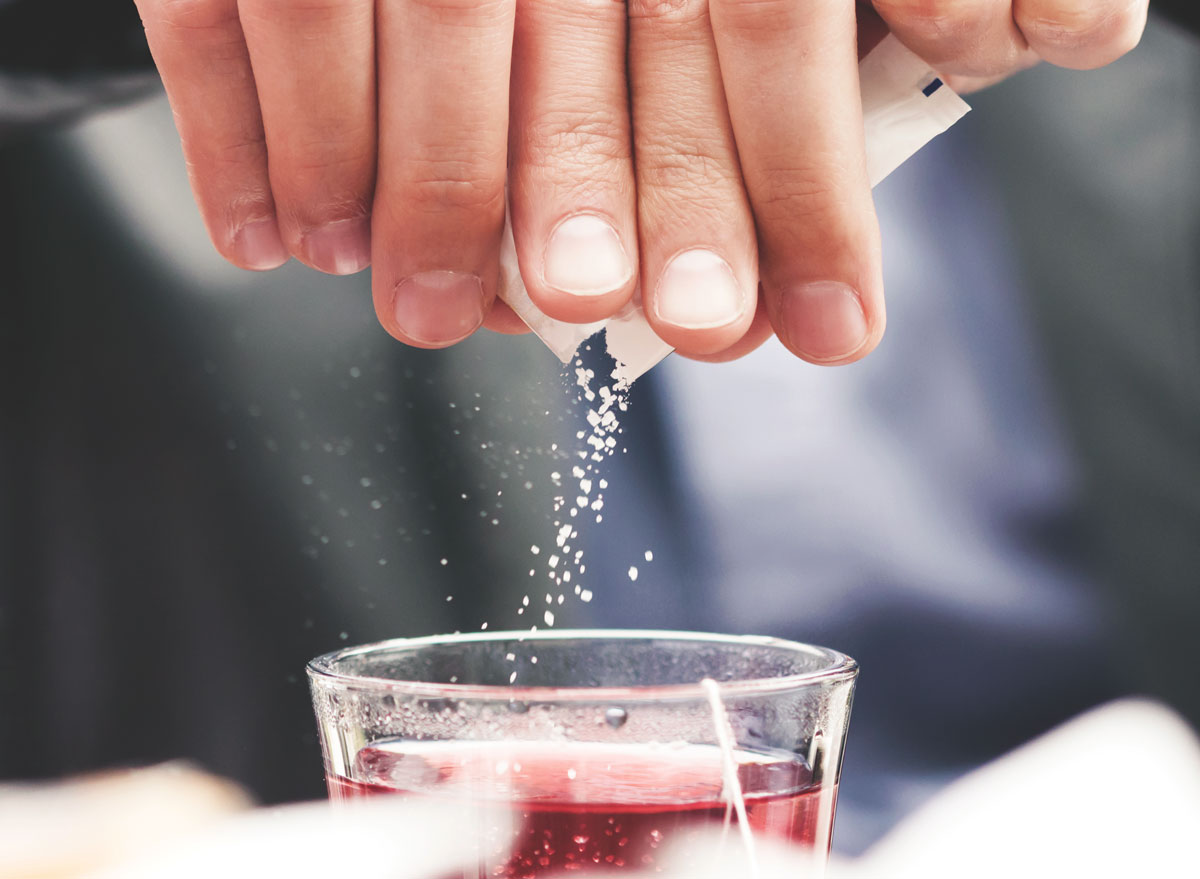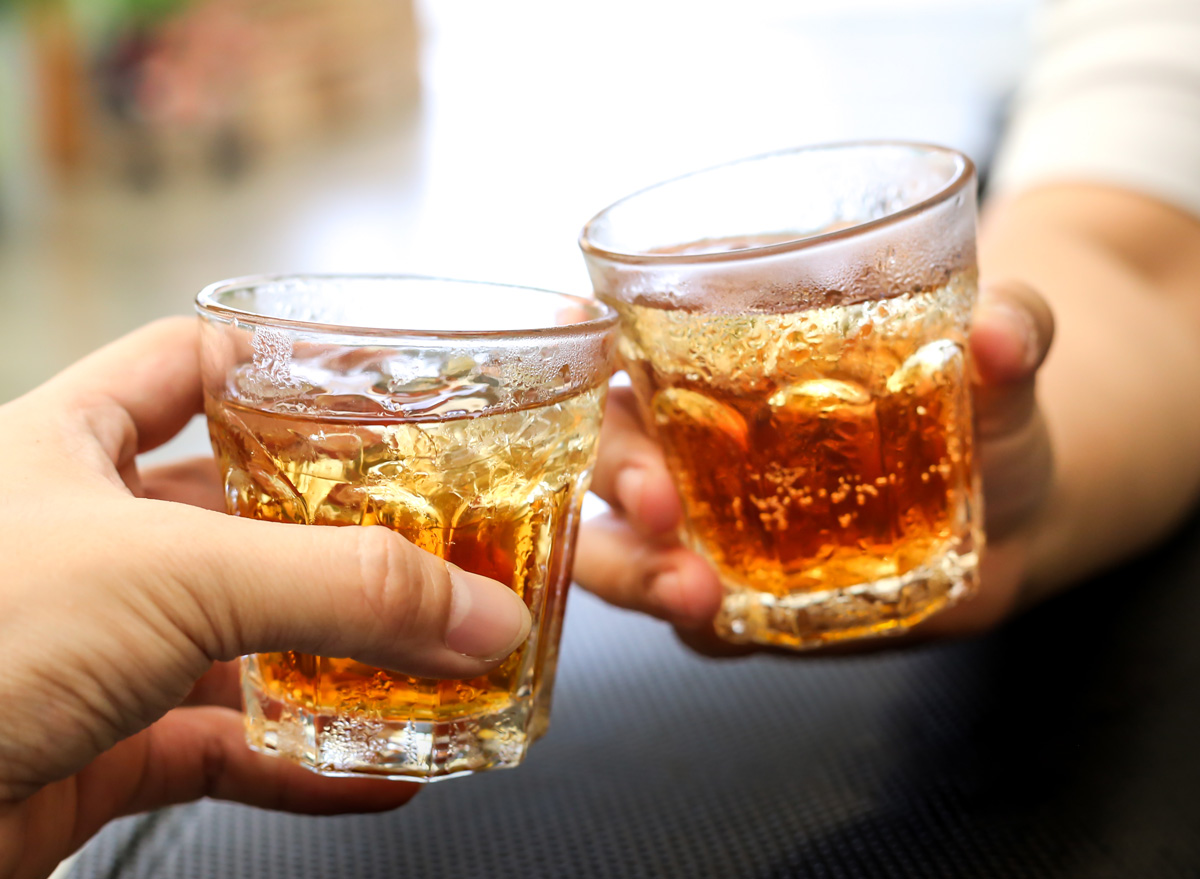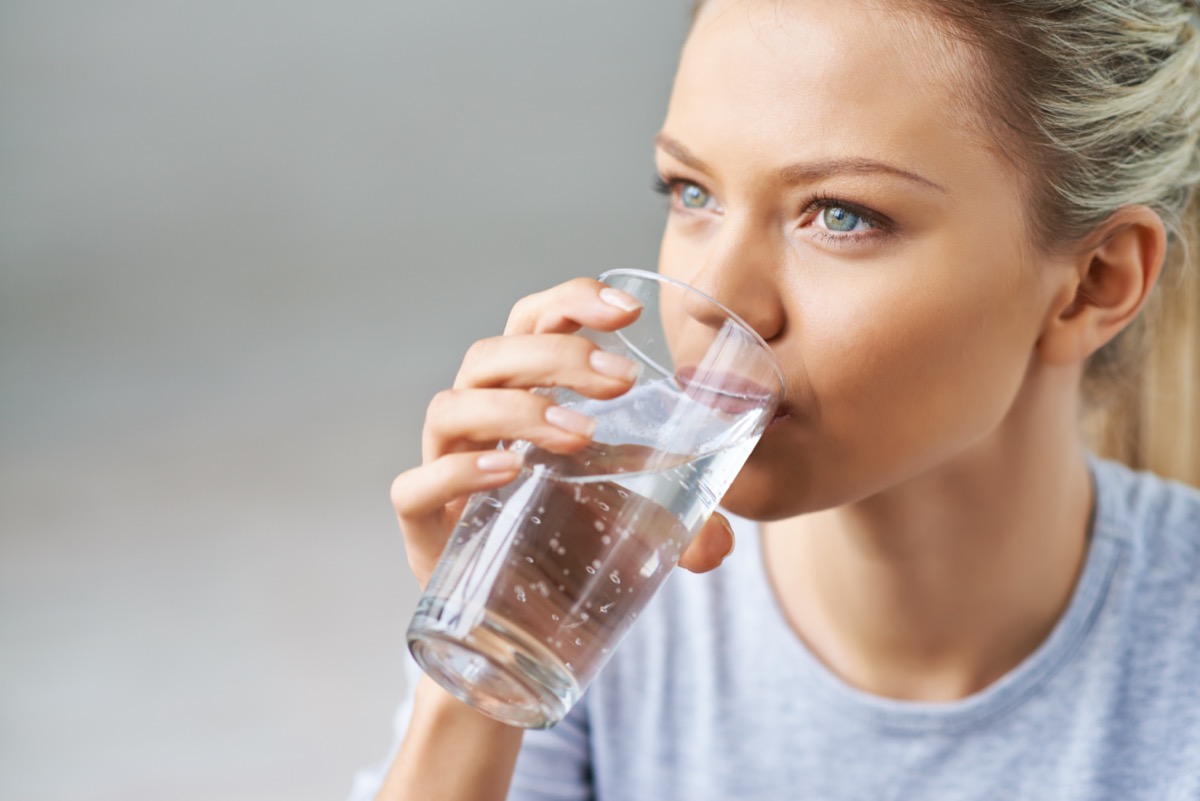Looking Older? Stop Doing These Things Right Now, Say Experts
Who hasn’t aged this year, after all the stress? Now that the country is reopening, there are ways to regain your youthful vigor, no matter your age, and extend your life in the process. We talked to the country’s top doctors about what you can do to stop looking and feeling old. Read on for their essential 6 takeaways—and to ensure your health and the health of others, don’t miss these Sure Signs You May Have Already Had COVID.

“Excessive sugars in our bloodstream particularly attach to proteins which produce free radicals [AGE] causing damages including shortening our telomeres, making our cells more resistant to repair and distorting dermal vasculature,” says Ava Shamban, MD is a Board Certified Dermatologist based in Los Angeles and is the founder of Ava MD Dermatology, SkinFive Medical Spas and The Box by Dr. Ava. In other words, they make you look older. “They break down our collagen fibers and slow the process of collagen building, both leaving their mark and contributing to advanced signs of aging.”
RELATED: How You Could Delay Dementia, According to Science

“UV rays from the sun cause free radical damage, photo aging, erratic melanin production, hyperpigmentation and hypopigmentation, dry scaly patches, enlarged pores, actinic keratosis and various types of lines and wrinkles,” says Dr. Shamban.
RELATED: I’m a Virus Expert and Here’s a Sure Sign You’ve Had Delta

Say the authors of one oft-quoted study: Stress ages you. There is “evidence that psychological stress—both perceived stress and chronicity of stress—is significantly associated with higher oxidative stress, lower telomerase activity, and shorter telomere length, which are known determinants of cell senescence and longevity, in peripheral blood mononuclear cells from healthy premenopausal women. Women with the highest levels of perceived stress have telomeres shorter on average by the equivalent of at least one decade of additional aging compared to low stress women.”
RELATED: Major Secrets Doctors Won’t Tell You

Alcohol has a number of immediate effects on the body, none of them too pretty. It dehydrates the skin and causes inflammation, which can cause facial flushing, swelling and broken capillaries, all of which make you look older than you are. In a 2019 multinational study of more than 3,200 women, those who drank more than eight drinks a week had more “upper facial lines, under-eye puffiness, oral commissures, midface volume loss, and blood vessels” than women who drank moderately or abstained.
RELATED: 5 Reasons You May Be Obese, Say Experts

Not drinking enough water can lead to dehydration, which can show up on your face in the form of dryness, crow’s feet, fine lines and dark circles. How much is enough? According to the U.S. National Academies of Sciences, Engineering, and Medicine, an adequate daily fluid intake is about 15.5 cups a day for men and about 11.5 cups for women. (That includes fluids from water, beverages and food.) About 20% of our daily fluid intake comes from food, with the rest supplied by drinks.
RELATED: Unhealthiest Habits to Quit Now, Say Experts

During sleep, various body systems—ranging from the brain to the skin—undergo renewal and repair. Getting less than you need can show up on your face. According to a study published in Clinical and Experimental Dermatology, women who got quality sleep experienced 30% better skin-barrier recovery than women who got poor sleep, and had “significantly lower intrinsic skin aging.” Get 7 to 9 hours of sleep per night, and to get through this pandemic at your healthiest, don’t miss these 35 Places You’re Most Likely to Catch COVID.
